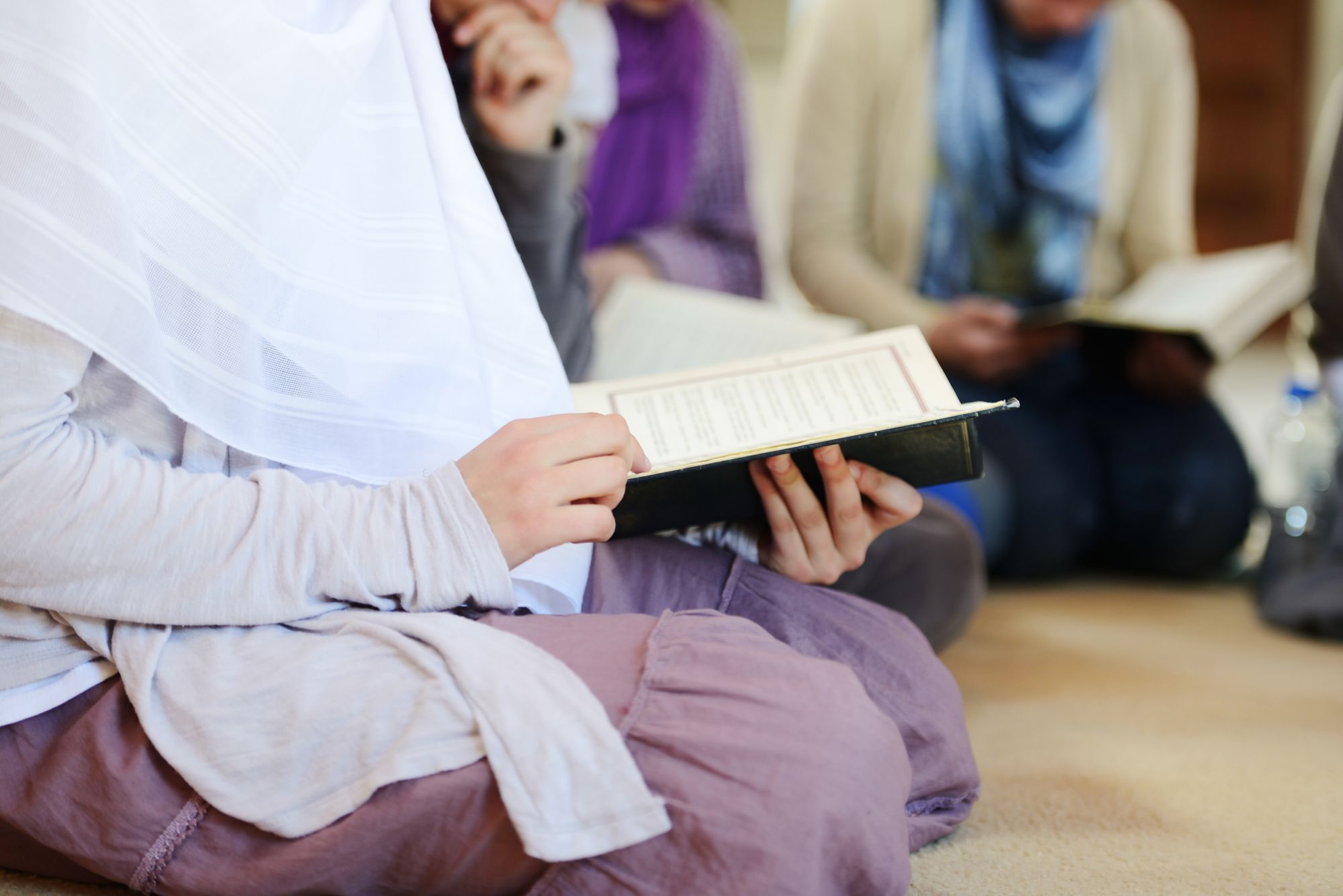Getting married is a serious and responsible stage in our life. It is the creation of your little state called “Family”, in which you will be the head of your household by the will of the Almighty.
Our Lord says in the Qur’an:
“Among His signs is that He created wives for you, so that you may find comfort in them, and He established love and mercy among you. Indeed, therein are signs for people who ponder” (Sura 30, verse 21).
Marriage is the way of the messengers. The Prophet Muhammad, peace and blessings of Allah be upon him, said:
“Get married! For on the Day of Judgment I will be proud of your multiplicity before other communities” (al-Bukhari).
Why is it important to ask questions?
We know how exciting the moment of dating is. Often when brothers find the right girl, they don’t know what to ask. Many are embarrassed, afraid of offending what they think are frank questions.
Here you need to remember: your goal is to find a wife who will not only be the mother of your future children, but will be a beloved companion of life with similar views and principles.
Talking about abstract topics, such as discussing events in the world, you both lose time that could be spent on a productive conversation. Ask specific questions. There’s no shame in that. On the contrary, you’re reaffirming your serious intention for the nikah.
Don’t be afraid to ask direct questions
How can you know about a man, his qualities, his outlook, his family, if you don’t ask direct questions? What if the girl has serious problems with her health, relatives, financial debts? All of this needs to be found out before the niqah. Otherwise there is a high probability of disappointment and perhaps even a divorce because of understatement.
There was a case where one brother was over-praised by his bride. He trusted his acquaintances and did not ask her any questions. After the wedding it turned out that his wife was a Muslim convert with little knowledge of Islam. Unfortunately, they could not get along and divorced a month later. When the “good” counselors were asked why they were silent about this fact, they responded with open arms and said they only meant well.
As you can see, properly asked questions to the bride is the key to creating a strong family.
Don’t be frivolous
Are there many who spontaneously buy a house or apartment without first learning about the pros and cons of the building itself and the neighborhood in which it is located? Rather, it takes a fair amount of time to find a good home. It’s the same with getting married.
We’re trying to help you find a potential spouse, so we don’t take it lightly on this topic. If you realize you’re not ready to start a family, we’d love to have you back on our site after a while.
The Messenger of Allah, peace and blessings of Allah Almighty, said:
“Whosoever of you is able to maintain a wife, let him marry, verily, it will dull his eyes and protect your genitals; and he who is not able, let him fast, verily, fasting will moderate his desire” (al-Bukhari, Muslim).
If you’re serious, we’ve put together a list of questions especially for you that will help you learn about religion and the temperament of the bride in the first place. Why religion first? Because women who are far removed from the observance of religious obligations most often live by “their” laws, may allow things that God has not allowed. As a result, they become stubborn and ignorant.

The Prophet Muhammad (peace and blessings of Allah be upon him) said:
“A woman is taken as a wife because of four qualities: her wealth, her origin, her beauty and her religion, so seek the one who is committed to religion, otherwise you will lose!” (al-Bukhari, Muslim).
What should you ask the bride?
1. How many years of performing namaz?
We are talking specifically about performing namaz, not about accepting Islam, living in Islam, etc. Because some people were born in a family of “ethnic” Muslims and think they have been in Islam since childhood, but they have only recently begun to observe the religious norms.
2. How does one fulfill the injunctions of religion?
First of all, let her answer this open and voluminous question on her own. If she finds it difficult to answer, we give hints: what kinds of worship she performs, how often, where did she learn about their proper performance, etc.
3. Can she read the Quran?
Find out the extent of her desire for knowledge and the reward from Allah for reading the Koran correctly.
4. How often does she read the Quran?
Love and desire for the Qur’an indicates love and desire for Allah.
5. What is her attitude toward her family?
Allah has commanded the maintenance of kinship ties, for which one receives many benefits. There is much harm to be gained from severing these relationships.
If she can’t get along with her relatives, how can she find common ground with yours?
6. How does her family feel about her observance of the injunctions of her religion and about Islam in general?
Let’s see how loyal or hostile her relatives are to her religious observance and to Islam in general.
7. What is her relationship with her neighbors, sisters, and other people?
Find out if she respects people’s rights.
8. What is her vision of her relationship with her future husband?
Here you need to listen very carefully and, if possible, ask additional, clarifying questions.
9. How many children does she want to have?
Find out what her priorities are regarding the number of children. There are sisters who say they don’t want children at all or want one or two at the most.
10. What will she do (what will she do) if her husband is unhappy with her?
Look at her actions in a particular life situation, which almost all families go through, especially in the early years.
11. Will she be able to endure if, at some time, Allah predestines little in the rizkah (oud)?
Will she be willing to endure with patience the hardships and privations prescribed by Allah? Or will she murmur, show her displeasure, and reproach her husband?
12. Will she be respectful and patient with her husband’s family?
Increase the chance that she will do so, since she has said it out loud and made a promise to her husband-to-be. Even if she doesn’t respect them later, for whatever reason, you can remind her that she promised to be patient with your family.
13. Will her parents or other relatives interfere in her family’s affairs?
A very important question, since there are many problems in families because of “good” advice from relatives.
14. How does she look at performing additional types of worship (fasting, sadaqah, night prayers)?
If she performs them, she will say so, and if not, listen about her attitude toward additional worship (nafil), and perhaps her reasons for not performing them or her intention to start performing them.
15. What does submission to her husband mean to her?
Find out her understanding of this question and compare it to your own view: do you have the same views.
16. How does she see herself in the family?
At first we give her the opportunity to answer this open and voluminous question. If she finds it difficult, then give hints: “For example, a mother or a businesswoman, an assistant to her husband or the head of the family,” etc.
17. What will she do if her husband decides to leave his stable job and go into a business where the income is unstable?
Find out if the wife will support her husband in his ideas and endeavors, including risky ones.
18. What does she see her future children as?
Indicates her priorities and what she would have liked to be, but for some reason couldn’t.
Gives an idea of what she will teach her children and what she will prepare them for.
19. What is her attitude toward the demand for knowledge?
Does she aspire to gain knowledge about religion?
Will she support you if you decide to go abroad to gain knowledge?
How and what will she teach her children?
20. What is her creed?
Find out if you have the same views on different religious issues. Without unity on these issues, there can be big problems in the family, up to and including divorce.
21. Whose lectures does she listen to and where does she get her knowledge?
Indirectly speaks of her beliefs and manhadge (methodology).
22. Does she have incurable or hard-to-treat diseases (HIV, hepatitis, TB, etc.)?
This does not mean that one should not marry such a woman. However, there are many diseases that are transmitted to the spouse during married life or cause infertility. It’s better to find out about these diseases beforehand and then make a conscious decision about marrying her.
23. Does she have, or has she ever had, problems with the government (been in jail, wanted, etc.)?
This does not mean that one should not marry such a woman. It’s better to find out about such things beforehand and then make a conscious decision whether to marry this woman or not.
24. What debts and obligations does she have?
If she has debts or obligations, then either you will have to help pay them off, or she will have to find other ways to do it (going out to work, selling her property to pay her debts, etc.).
The answers to the above questions will help you conclude whether your sister in faith is suitable as a wife, or whether it is worth breaking off communication.
May you soon find one that will bring you closer to Allah and become a delight for your soul in this world and the world to come!
The Messenger of Allah, peace and blessings of Allah Almighty, said:
“He to whom Allah Almighty has given a pious companion of life, He has helped him to gain half the faith. And may such a person show piety in the other half [of faith]” (al-Hakim).
May Allah Almighty help you to make the right choice! Ameen!



